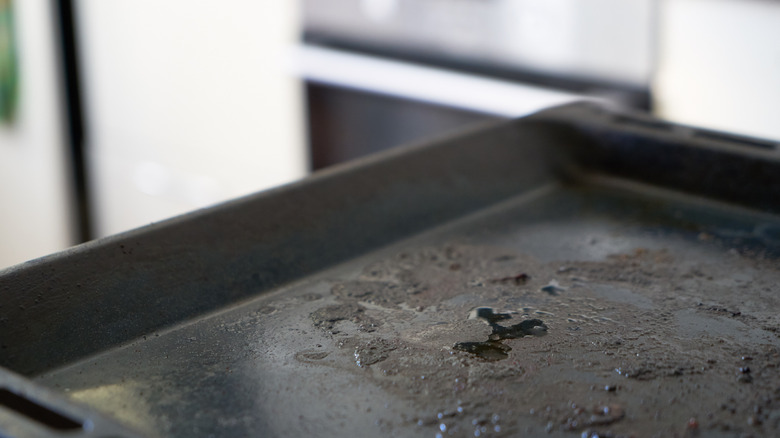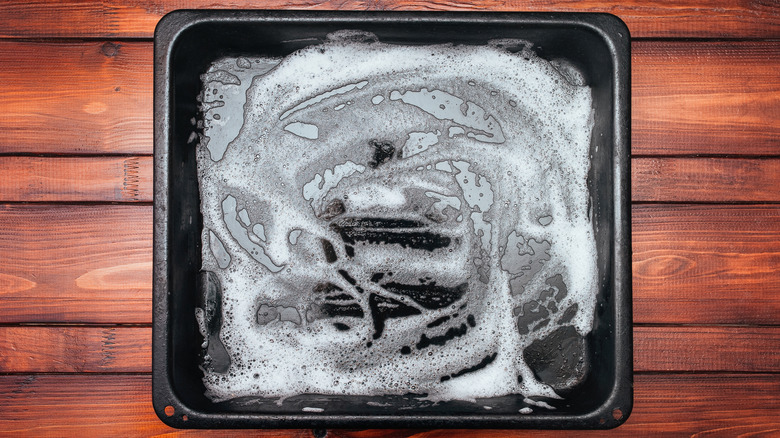Is Cleaning Greasy Baking Sheets With Oven Cleaner Brilliant Or A Disaster?
When it comes to cleaning products, stronger is always better — right? Well, it depends. While it's true that some people swear by using toilet bowl cleaner to de-grime your shower or using an oven cleaner to clean baking sheets, it's important to take precautions with such strong products. Some surfaces can be damaged by oven cleaners over time, and according to the manufacturer's instructions for many baking trays, oven cleaners and pots and pans aren't a safe mix. In some cases, using them may even void the warranty on your cookware.
Oven cleaners are powerful enough that they can tackle the dirtiest appliances in your home, not just your oven. They typically contain strong, toxic chemicals such as lye, ethers, and ethylene glycol (a chemical that's also in antifreeze). These chemicals allow the oven cleaner to effectively penetrate grease and oil in areas of the oven that are difficult to scrub by hand. That's likely why people have also decided to use these products for cleaning other items that accumulate grease, including baking sheets.
Because of how caustic oven cleaners are, they can easily irritate your skin and airways. Even if an oven cleaner's label doesn't specifically advise against using it on baking trays, it's best avoided. If used often enough, oven cleaners can damage the surface of the oven, and the same goes for baking sheets. It's worth opting for less risky cleaning methods to get your baking sheets clean.
How to safely clean baking sheets
By the time you're considering using an oven cleaner to clean your baking sheet, chances are you've got some seriously stubborn grease burnt onto the surface, and you're hoping to avoid a ton of scrubbing. The good news is that other methods are just as effective as oven cleaners, are far safer for your cookware, and don't create toxic fumes; they just require a little more patience and elbow grease. Cleaners that are safe for many baking sheets include Bar Keepers Friend, baking soda, and a mix of baking soda and vinegar.
For stubborn debris, a mixture of baking soda and hydrogen peroxide will get you the best results with the least scrubbing. The key to success is threefold: First, let the mixture soak on the surface overnight. Second, use a plastic scraper to help you lift the debris away — a regular sponge isn't abrasive enough, and steel wool may scratch the pan. Third, follow up with a regular scrub with soap and water.
To prevent your sheets from getting quite so gunky in the future, line them with parchment paper or aluminum foil with every use. Keep in mind that it's healthy and normal for baking sheets to develop a layer of brown. It's known as "seasoning" (like on a cast iron pan), and it helps the material heat up, protects it from acidic foods, and makes it naturally nonstick.

